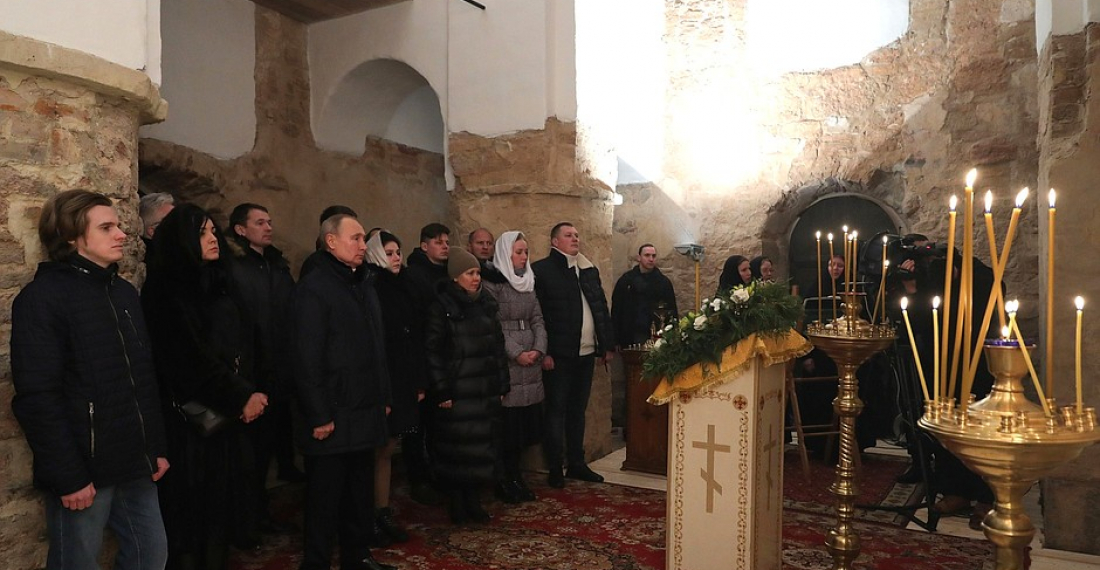Russian president Vladimir Putin has marked Orthodox Christmas at a service in the small chapel of St. Nicholas on Lipno, located on the Lipno island in the east of Lake Ilmen, eight kilometers from Veliky Novgorod.
The church was built in 1292 by Archbishop Clement on the site where the miraculous icon of St. Nicholas of Myra was found at the beginning of the 12th century. This is the earliest surviving church in Russia, built after the Mongol invasion. Restoration work was carried out several times, including in 2017–2019.
In a message to the Russian people on the occasion of Orthodox Christmas, president Putin said “This wonderful holiday illuminates the world with the light of goodness and love, gives joy and hope to millions of people, and turns them to enduring spiritual values.
President Putin added that it is important that the Russian Orthodox Church and other Christian confessions pay tireless attention to issues of moral health of society, strengthening the institution of the family, educating the younger generation, and sincerely care about maintaining interethnic and interreligious dialogue. "This large, multifaceted work deserves the deepest respect", the president said.
Source: commonspace.eu with the press service of the president of Russia.
Photo: President Putin at the Chapel of St Nicholas on Lipno on the occasion of Orthodox Christmas






